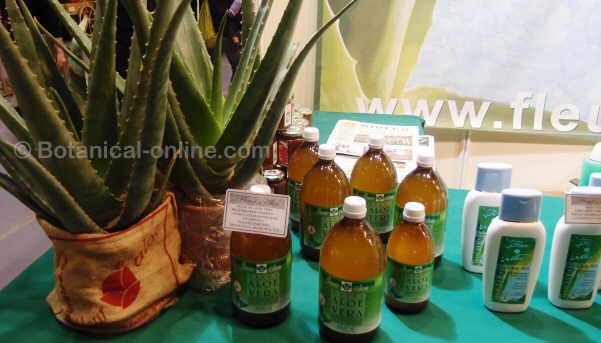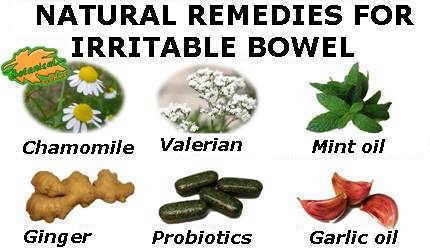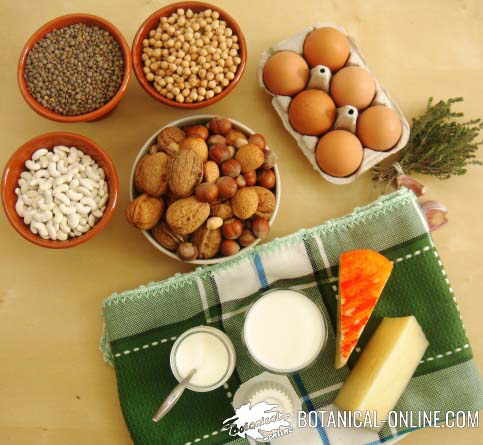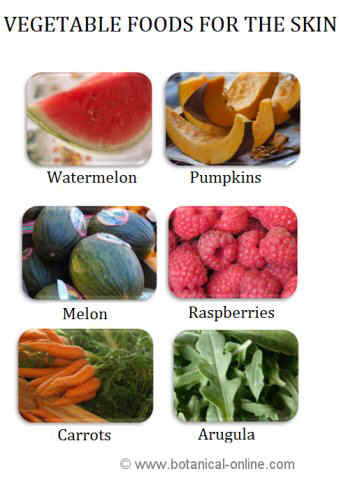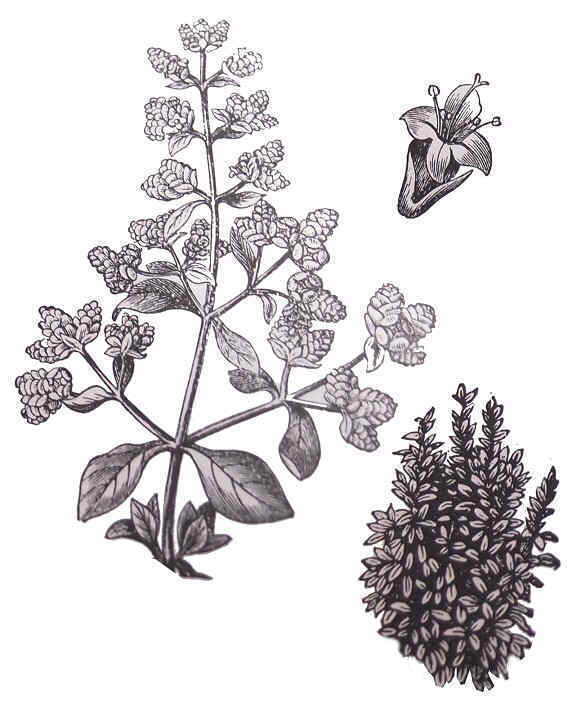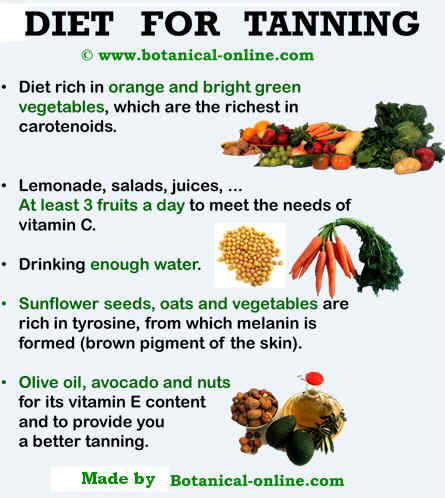Contents
- 1 How to improve “zero waste” in the kitchen?
- 1.1 What does zero waste consist?
- 1.2 Tips to decrease the plastic when going to the purchase
- 1.3 Fruit and vegetables do not need plastic packaging
- 1.4 Reduce consumption of canned and bottled beverages
- 1.5 Toxic in cans and plastic bottles
- 1.6 Always buy in large containers
- 1.7 Avoid buying in individual plastic containers
- 1.8 Snacks and takeaway without plastics
- 1.9 Avoid the use of aluminum foil
- 1.10 Eliminate plastic cups, plates and cutlery
- 1.11 Is the zero waste movement vegetarian?
- 1.12 Should we stop eating meat?
- 1.13 Avoid buying at a distance, if possible
How to improve “zero waste” in the kitchen?
What does zero waste consist?
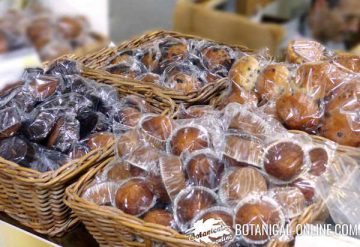
The inexpensive snacks are not worth the cost of its packaging to the environment.
The zero waste or zero waste movement consists of reducing the consumption of containers and non-reusable products in order to avoid further polluting the environment, as it is evident that most containers are not recycled and that the management systems and recycling are very insufficient to offset current waste production.
Among these, one of the sources of waste that pollute the environment is precisely the packaging of food and beverages, because they are consumed many times during the day and every day of the year.
Tips to decrease the plastic when going to the purchase
Among the first measures that can be adopted to reduce the consumption of plastics is to carry reusable baskets or bags of clothes, to remove the plastic bags from the purchase. It is also interesting to take reusable containers to buy olives, cheese, meat or fish.
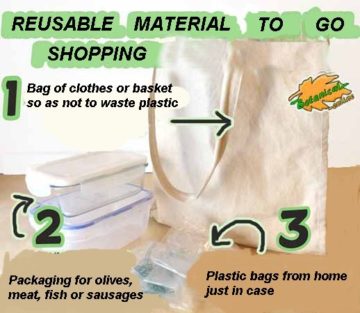
In addition, we can dispose of a plastic bag , just in case it is necessary at some point, not having to consume a new one from the store.
If one day we forget the bag, or the volume of the purchase is large, many establishments have wood or cardboard boxes to lend or give away.
Fruit and vegetables do not need plastic packaging
It is also important to avoid spending a plastic bag for each fruit or vegetable that we want to buy, as well as not being necessary, most of these bags are not reused.
In some countries, such as Spain, there are cases such as, for example, of people who spend 4 bags to buy 1 onion, 2 oranges, 4 bananas and 1 kiwi. Can we imagine the daily plastic consumption of each greengrocer? The most ecological thing would be to weigh the fruits individually, without needing a bag, and then place them all in our basket or cloth bag.
Reduce consumption of canned and bottled beverages
Drinks are one of the main sources of food waste, since they are consumed daily, in individual containers, and almost always come in plastic or tin. It’s amazing how many bottles and cans end up in the oceans!

We must be aware of how harmful it is to the environment to consume bottles or cans of soda, beer or water daily. Totally unnecessary! For this reason, it is recommended:
- Avoid buying drinks in individual bottles. It is always more ecological to use large capacity containers. For example, pollute less buy water in quantities of 8 liters, than buy 6 bottles of 1.5 liters.
- Avoid individual drinks in plastic or tin. If they are consumed, it is important to recycle them. Some alternatives are infusions, natural juice (in glass or reusable), fruit, tea, kombucha, or water with lemon.
- Avoid the use of plastic stoppers, such as those usually used in coffee or hot drinks to take away. If coffee is consumed every day, it would be a good idea to buy a reusable glass for it.
- Avoid the use of plastic straws. Plastic straws are very polluting, useless, and are never recycled.
Toxic in cans and plastic bottles
In addition to polluting, cans and plastic bottles are not recommended for many other reasons. On the one hand, cans may have small dents that cause the tin coating to detach, a heavy metal that is very difficult to remove from the body. This material also emerges from open cans that are preserved for days (for example in fruit preserves).
In the case of plastic containers, it is known that the plastic releases bisphenol A (BPA) and other components that are endocrine disruptors, that is, substances that affect the hormonal balance of the body. These components are particularly soluble in alcohol, for this reason, alcoholic beverages are never found in plastic bottles.
The best bottles to fill are glass. Currently there are many brands that sell glass bottles to carry.
Always buy in large containers
Buying in large containers avoids the use of packaging and also saves money for your pocket. For example, if you buy oil, it is better in large bottles of 8 liters than 1 liter. The same with water. According to what product, if necessary, we can share with relatives or neighbors.
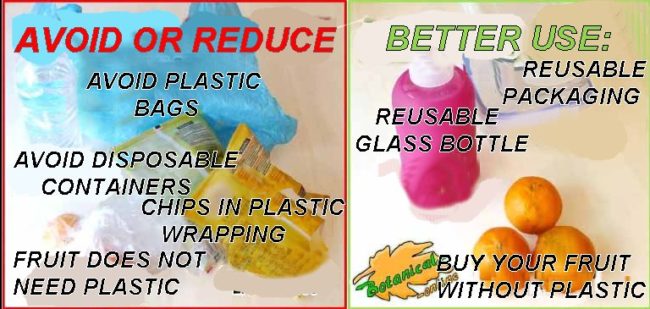
Avoid buying in individual plastic containers
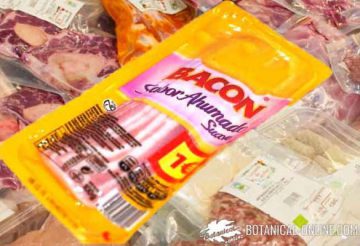
Sometimes, it is inevitable to buy meat in plastic containers. However, on many other occasions, there are sausages, cold meats and other processed meats that spend a plastic container only for a few grams. It is a waste to spend a plastic container for 4 slices of sausage.
Ideally, whenever possible, buy the whole sausage (which does not come in plastic), or avoid the daily consumption of this type of products.
Another great source of food plastics are yogurts, jellies and desserts, which almost always come in individual plastic containers. It is better to buy the yogurt in half-kilo glass jars, and sometimes replace the dessert with a fruit.
Snacks and takeaway without plastics
There is no need to buy juices, smoothies or packaged food, much less having to use plastic cutlery every day. To be organic you only need organization and anticipation: you can bring fruit, dried fruit, homemade nuts or sandwiches and reusable food utensils (cutlery, dishes, etc.).
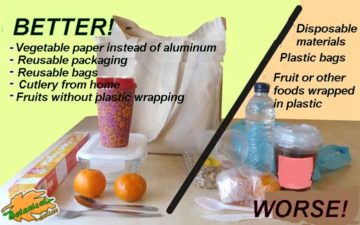
Avoid the use of aluminum foil
Aluminum foil can have certain uses, but it is almost never recycled. In addition, it is often used improperly (for example, by subjecting it to too much temperature), which causes aluminum to pass into food. Aluminum is a heavy metal that is difficult to remove.
For these reasons, it is convenient to replace it with other more ecological and equal options of practices:
- Avoid aluminum foil to wrap food or sandwich: it can be replaced by many other options. For example, any pretty fabric and some paper can perform the same function. There are even brands that have developed reusable plastic and fabric wrappers.
- For the oven and papillotes, you can use vegetable paper or silicone containers (suitable for food) with lid, suitable for cooking.
Eliminate plastic cups, plates and cutlery
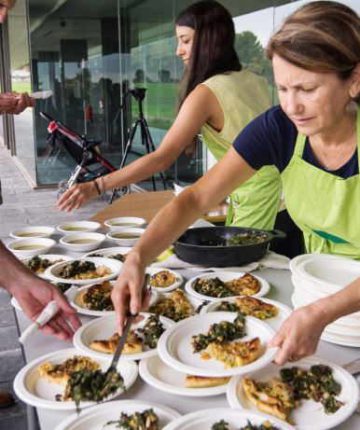
It is in the most attended celebrations when more waste is generated. The rush and the fact of wanting to save cleaning work cause that in this type of meals almost nothing is recycled, and in addition many canned products and in plastic bottles are consumed.
There are ways to avoid so much pollution. Currently there is a wide range of disposable tableware made with cardboard or biodegradable materials. Its price is a bit more expensive than plastic, but perfectly affordable. In addition, environmental education deserves it.
- If you eat out of the house every day, you better bring the metal cutlery from home , instead of using plastic cutlery.
Is the zero waste movement vegetarian?
Anything that reduces waste can be considered zero waste movement.
When people begin to become aware of the environment and to become informed, they soon see that it is necessary to reduce the consumption of meat from their diet, because meat has a very high ecological impact.
Consuming animals, especially large animals (red meat) spends many resources: for the cultivation of grass (water, fields, pesticides, etc.), for animal care (use of antibiotics, cleaning and disinfection material that ends in the environment, waste management, etc.), and for transport and marketing (fuel, plastics and packaging), as examples.
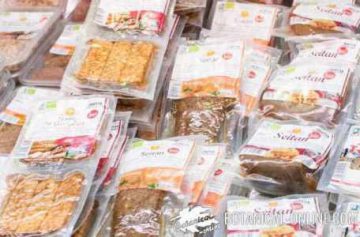
It should be mentioned that extensive cattle ranching is the main cause of the worrying resistance to antibiotics. Therefore, the environmental issue merges with health.
Should we stop eating meat?
Obviously, consuming less meat does not necessarily mean having to eat totally vegetarian or vegan. It could be summarized in:
- Avoid eating meat every day. In general, it is not necessary and you can obtain proteins from other foods such as legumes or organic eggs.
- In addition, foods rich in vegetable protein have many health benefits, such as providing more magnesium and calcium than meats, or decreasing the risk of diabetes.
- In general, eating small animals contaminates less than eating large mammals. For example, it is more environmentally friendly to eat chicken or rabbit, rather than large animals, such as pigs, horses, cows or lamb.
- Buy your meat in the market, with reusable containers, this way we save the plastic of the container.
- Avoid buying sausages and meats individually packed in plastic.
Avoid buying at a distance, if possible
Finally, another fashion that pollutes a lot and that is increasingly on the rise is the issue of buying at a distance. Although technology facilitates access to many products that are not affordable in local establishments, many other times it is consumed online only to avoid having to waste time traveling.
The transport sector is quite polluting, in addition to consuming more plastic and packaging. For this reason, whenever possible, it is better to go to physical stores.
![]() More information on zero waste
More information on zero waste

